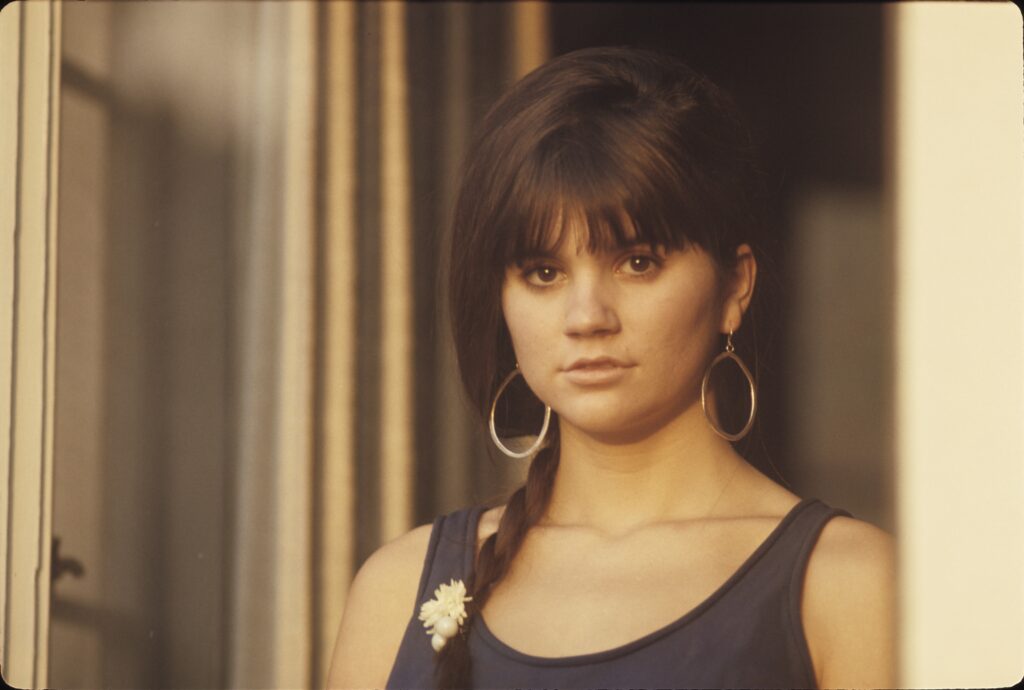
A whispered confession of love and longing, “Dark End of the Street” in the voice of Linda Ronstadt becomes a tender ache—an intimate hymn for hearts that remember what it means to love in the shadows.
From the very first notes of her 1974 masterpiece Heart Like a Wheel, where this rendition quietly resides, Linda Ronstadt takes an already haunting soul classic and bathes it in a new kind of moonlit sorrow. Though “Dark End of the Street” was never released as a single and thus carried no individual chart position of its own, the album that sheltered it rose to #1 on the Billboard 200, a testament to the cultural weight Ronstadt was beginning to assume. And tucked within that landmark collection of songs is this understated jewel—one that reveals more with every slow, deliberate breath she gives it.
The story behind the song stretches back to 1967, when Dan Penn and Chips Moman wrote it in a Memphis hotel room, determined to capture the inevitable heartbreak of a love that must remain hidden. Originally recorded by James Carr, the song quickly became a soul standard—its narrative of secret lovers forced into the margins resonated deeply in an era that knew something about forbidden tenderness. Yet when Ronstadt approached it seven years later, she did something remarkable: she softened its edges without dulling its truth, letting the quiet devastation seep through in her own unmistakable way.
There’s a particular ache in the way she sings, “They’re gonna find us someday.” In her hands, the line becomes less a warning and more a weary surrender. Where Carr’s version trembles with urgency, Ronstadt’s carries the weight of resigned memory—like someone who has lived long enough to understand that even the most desperate love cannot outrun the light forever. Her voice, stark and unadorned, floats through the arrangement with a kind of trembling honesty, as if she is confessing not to an audience but to her own past.
And perhaps that is why this track has remained so deeply affecting. It is not the loudest song on Heart Like a Wheel, nor the one that charted, nor even the centerpiece critics always discuss. Yet it lingers. It lingers because Ronstadt sings it like someone who has walked through the long corridors of longing and come out the other side—not untouched, but wiser, gentler, and carrying the kind of scars that glimmer when remembered in the quiet of late evening.
The meaning of “Dark End of the Street” has always been tied to secrecy: a love lived in whispers, in stolen moments, in places where the world cannot follow. But in Ronstadt’s interpretation, the song becomes less about hiding and more about the fragile, incandescent beauty of connection itself. She reminds us that even love born in the shadows is still love, and that its sweetness is often heightened by the knowledge that it may not last.
And so the song becomes a memory—of an era, of a feeling, of a tenderness that glowed softly in the hidden corners of life. When Ronstadt sings it, one can almost feel the cool night air, the hush of a distant street, the bittersweet knowledge that some loves are too complicated to survive the daylight. Yet for a few minutes, as her voice carries across the years, that hidden love lives again, warm and impossibly alive.
In that way, Linda Ronstadt’s “Dark End of the Street” is not just a cover. It is a quiet confession, a gentle echo of the past, and a reminder that the heart often keeps its most beautiful stories tucked away in its dimmest rooms—waiting for a familiar voice to bring them back into the light.